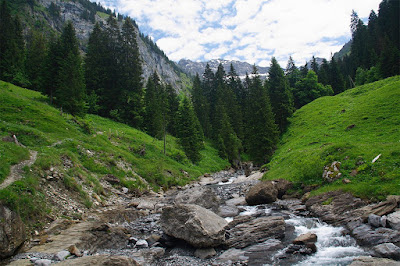“Boris will be Boris” seems to be the watchword for the depressingly large number of admirers of Boris Johnson, only too ready, it seems, to re-elect him as British Prime Minister if given the chance.
It seems they feel that indulgence is due to him because his behaviour merely reflects his character. That, to be honest, doesn’t strike me as specific to Johnson alone. Nor, frankly, does it seem to add up to any good reason for putting up with what he does.
I mean, think “Bolsonaro will be Bolsonaro”, “Kim Jon Ung will be Kim Jon Ung”, or even “Adolf will be Adolf”. All true statements but surely not enough to excuse their outrageous behaviour. Not for me at any rate.
But we live in a time of cults. We had that in Labour under the sainted Jeremy, who we were constantly assured was walking on water, even when to the rest of us it looked like he was wading through mud. If ‘mud’ isn’t too kind a metaphor for his evasions and deceptions about Brexit.
We had it with Donald Trump, whose supporters reckon their tribute to him was just a little tourism in the Capitol building in Washington. Perhaps not gentle tourism. Tourism all the same, they assure us, which just happens to have left a few dead and a lot of damage.
Tourists will be tourists, after all.
Now it’s the Johnson cult in England, far more powerful than anything that the poor lost soul Corbyn could manage. After all, it’s secured him a parliamentary majority, never in Jeremy’s short reach. As in the other cults, the worshippers simply can’t see, or they choose to ignore, the guru’s flaws, however glaring and shocking they are to others.
So this very week, for instance, we’ve been given more evidence of Johnson’s incompetence and dishonesty.
The incompetence was in his slipping out restrictions on eight areas of England where Covid is becoming worrying again, simply by naming them on a government website, but without a specific announcement, far less any consultation with authorities in the places affected. And, almost inevitably for a government for which the U-turn seems to be an art form, they were reversed as soon as they were discovered and made public.
The dishonesty was in the announcement that a number of companies that contribute to the Tory Party had failed to deliver supplies to fight the pandemic, despite signing contracts, which they were awarded without a proper tender procedure. Jobs for the boys, it seems, and the boys didn’t deliver.
Ah, well. Boris will be Boris. Or so I’m sure his fans will assure us.
That’s why I don’t expect the charges levelled against him to two parliamentary committees by his former henchman, Dominic Cummings, will do him much harm. Cultists, as we found out in Jeremy’s Labour Party, are impervious to mere evidence.
 |
| Hell hath no fury like a Cummings scorned Testifying to Parliament, his gesture is an accurate assessment of Boris Johnson’s aptness for government |
Still, there’s plenty in the Cummings testimony that seems highly believable. Johnson failing to take the pandemic seriously at first – we certainly saw that. His constant flip-flopping and U-turns – we saw plenty of them. His lack of planning and the tens of thousands of deaths it led to – only blinkers can hide them from you.
Above all, though, there’s one statement Cummings came up with that I find profoundly convincing, above all for the lucidity it shows about himself:
The problem in this crisis was very much lions led by donkeys, over and over again. In any sensible, rational government it is completely crazy that I should have been in such a senior position, in my personal opinion. I’m not smart, I’ve not built great things in the world. It’s completely crackers that someone like me should have been in there, just the same as it’s crackers that Boris Johnson was in there, and that the choice at the last election was Jeremy Corbyn
Lions led by donkeys, the way British soldiers and their inept commanders were described in the First World War. Yes, that fits. And it’s crazy that a man like Cummings should ever have held the senior position Johnson gave him. He’s not smart, he’s never built anything. Certainly, his track record suggests a streetwise scrapper rather than a man of insight, and someone more gifted for destroying than for construction.
To crown it all, there’s that powerfully precise assessment of Johnson. It’s ‘crackers’ that Johnson should hold the position he occupies. As it is that the only alternative to him at the last election was Jeremy Corbyn.
It’s astonishing that out of 70 million people, the best Britain could come up with at that election was Dominic Cummings, Boris Johnson and Jeremy Corbyn. It’s depressing, but maybe not irredeemable. After all, Corbyn has gone and now Cummings too. That leaves only one of the over-promoted trio of still in place.
Sadly, he’s the one with the power to do most harm. And he’s the one who’s hardest to get rid of. He’ll only go when the people themselves finally decide that they really deserve better than so much rottenness and ineptitude.
But that means they’re going to have to stop believing in “Boris will be Boris”.






















